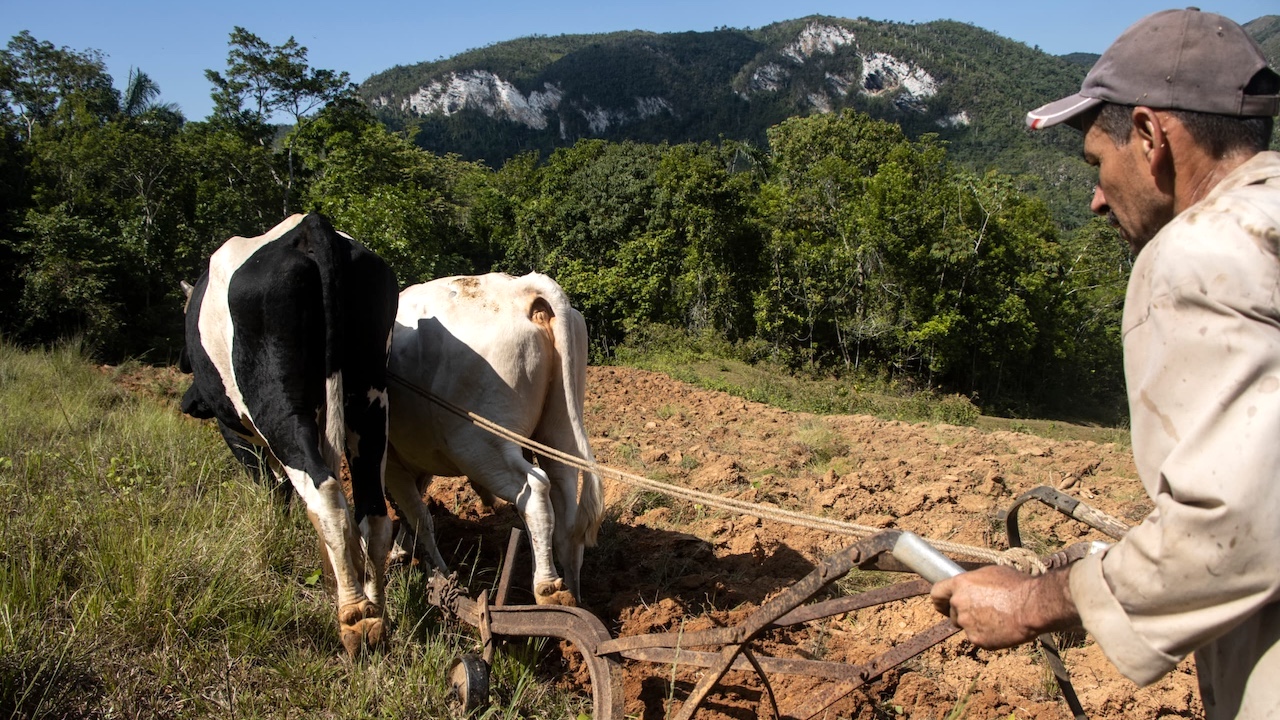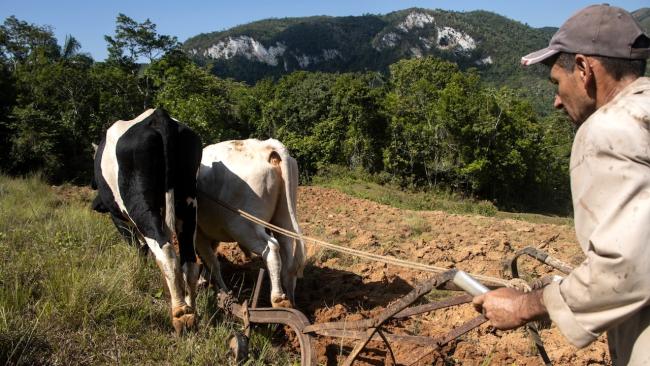As Fidel Castro was aware that the civil society he needed to decimate, urgently, was that in the country's cities, even after the Revolutionary Offensive of 1969, when not even the most destitute shoe shiner had a penny for wax, he continued to let hundreds of private agricultural entrepreneurs in the countryside produce with hired labor, invest, buy and sell. In short, they remained normal entrepreneurs, although surrounded by an abnormal socialism.
But, although theoretically largely private, Cuban agriculture, strangled by socialism, could not generate a land market bringing together the productive base on the most efficient projects, nor could it decide what to grow, nor could sales be made to whomever one wished at freely-established prices. And growers certainly could not develop a competitive portfolio of suppliers, or accept foreign investment, or dream of importing or exporting directly. Thus, an encyclopedic list of limitations, prohibitions and obligations constituting a blatant abuse of law empowered the State to steal the fruit of agricultural work, perhaps the most exhausting in the world... apart from carefully watching a broadcast of a Fidel Castro speech.
Private entrepreneurs in the countryside were thwarted with every kind of gate, fence and barricade possible, preventing them from feeding the country and prospering. Then, to add insult to injury, too often the State did not even pay them in a timely manner, preventing them from capitalizing and investing. Obscenely neglectd by the Government, the Agriculture Ministry has maliciously driven Cuban agriculture, after centuries of almost linear growth, into bankruptcy.
If that ministry granted 100 pesos of credit for every fruitless plan, measure, understanding, resolution, order, strategy, law and agreement it has issued, Cuba's fields would not be overgrown with marabou today. But while the news is full of speeches and plans on how to solve hunger in Cuba, the funds that are needed continue to be diverted from the sector, because GAESA's colonels make more off of a semi-empty hotel than a rice field... and whoever is hungry can find a buffet... or watch the Round Table.
And as if thousands of square miles of fertile land just sitting there, without even being sowed, in a starving country, were not enough, when things go wrong Castroism always manages to make them even worse: they have just published resolution 275/24 as "a new regulation to organize and control the commercialization of agricultural goods," as, for Castroism the problem is not that there is hunger, but rather that it is disorganized and uncontrolled. The ultimate aspiration of socialism is not prosperity, but rather the equitable and organized distribution of hunger.
So, satisfied with the "success" it has achieved with 65 years of socialist agricultural policy (dictated from above with no one able to comply below) the Government has, once again, turned its back on the market as the only universally proven way to coordinate the needs of society with agricultural potential, thus worsening the very disaster plaguing Cuba, a country that once exported meat and massive amounts of sugar, but today has been reduced to importing sugar from France and chicken from the "enemy."
It is not difficult to imagine ministers, vice-ministers, directors, vice-directors, section chiefs, deputy chiefs and other geniuses at the Ministry of Agriculture, all obese, meeting via videoconference with Díaz-Canel and Marrero, also obese, and explaining to them that in Cuba there is a lack of food because the farmers are not trying hard enough, lack revolutionary commitment, want to become millionaires by selling 12 liters of milk and planting three stems of cassava, and that at the cooperatives ideological political work is failing. "How do we solve this, comrades?" Canel must have asked. "Should we assign more resources to agriculture?" Faced with such an outrageous proposal, Marrero, GAESA's agent in the Government, must have gone red with anger, exclaiming "None of that! The money is for hotels. If you want, you can print more pesos."
And, since they do not want to allocate any money to the countryside, they proceed to pass another law to feign concern for the thousands of children who cannot eat breakfast in Cuba, or the thousands of adults who go to bed amidst blackouts and racked by hunger, without really caring that it is not organization, but rather manure that agriculture needs; not more control, but fertilizers and feed; not more meetings, but tractors; not laws, but markets; not ministerial officials, but hands working the soil; not moral inducements, but promotional funds; not Party visits, but commercial freedom.
This new regulation once again tells Cuban agricultural entrepreneurs what they have to sow, how, where, to whom they have to sell it, subjecting them to the economic plan of the State, which chains them to state companies and even forces them to use a banking system that they do not trust. It is a kick in the gut to Cuba's ailing growers, already poisoned by the worst herbicide known to man: statism. Sweet potatoes, yes; socialism, no!

